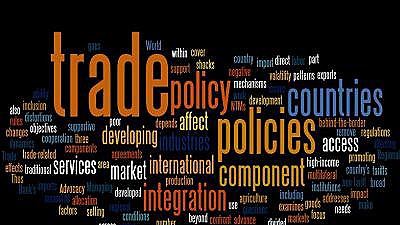WHAT DID I MISS BY NOT ATTENDING THE TRADE, POVERTY, AND SHARED PROSPERITY CONFERENCE?
Are supermarkets good for the poor? Does openness exacerbate volatility? Will food price increases help or hurt poverty reduction? How do labor markets modulate the impact of globalization? Does trade-induced inequality cause crime? These are among the questions addressed at the Trade, Poverty and Shared Prosperity conference taking place on December 10th and 11th. Comprising six sessions, an expert panel, and opening remarks by Asli Demirguc-Kunt, the conference examines both how globalization impacts poverty and inequality, and how policymakers can harness its potential to catalyze development.
How Does Globalization Impact Poverty and Inequality?
Trade impacts household welfare both by changing the prices and availability of consumption goods and altering income earning opportunities. How to measure these different effects is the focus of the opening session on Globalization and Household Welfare. Guido Porto will present a new methodology to quantify trade-offs between efficiency and equity in trade protection. Benjamin Faber shows that the emergence of supermarket chains in Mexico increased household welfare by lowering prices and augmenting the supply of higher quality goods, without inducing sizeable employment losses.
The importance of these channels of impact may vary over time, leading to intertemporal tradeoffs. While higher food prices tend to exacerbate poverty in the short-run, as many poor people are net purchasers of food, they reduce poverty in the longer run, by raising wages for low-skilled people. In the session on Food Prices and Poverty, Hanan Jacoby and Will Martin discuss the policy implications of these countervailing effects.
Countries with more flexible labor markets are better capable of minimizing such trade-offs as they adjust more quickly, as shown by Erhan Artuc in a session on the Labor Market. When rigidities are rife, adjustment costs may dwarf the gains from liberalization. Ann Harrison documents how globalization led U.S. workers to move from high-paid manufacturing jobs to lower paid services jobs. Failing to account for such adjustment, as the majority of studies do, leads to overly optimistic estimates of the gains from globalization.
Yet, the impacts of globalization on human behavior extend far beyond consumption and income alone. Lakshmi Iyer, for example, shows how trade-induced inequality may incentivize crime in a session on Crime and Conflict.
What Should Policy Makers Do?
When managed appropriately, increased integration has enormous potential to catalyze development. The historical and (quasi-)experimental evidence presented at the conference shows that:
- Investing in connectivity can catalyze growth and reduce vulnerability. Dave Donaldson demonstrates how the expansion of railroads in India reduced the incidence of famines by minimizing income volatility due to local weather shocks. Bob Rijkers provides further evidence that market access is conducive to development by showing how mobility restrictions imposed by Israel in the aftermath of the second intifada stunted growth in the West Bank.
- Inclusive institutions help harness the potential development impact of trade. In a session on the Persistence of History, Paulo Bastos demonstrates how the end of Apartheid has shaped development patterns in South Africa. The attendant dismantling of coercive institutions enabled especially rapid growth amongst formerly discriminated black communities that were subsequently able to share the spoils of natural resource rents.
- Export Promotion pays off. Using a randomized control trial, David Atkin shows that Egyptian rug producers who were incentivized to export became more productive, improved the quality of their rugs, and increased their profits by 25%.
Ask the Experts!
The culmination of the conference will be the Expert Panel moderated by Aaditya Mattoo, in which Alan Winters, Branko Milanovic, Ana Revenga and Francisco Ferreira who will debate a number of propositions, including:
- Trade policy should be pursued with the goal of enhancing efficiency; the pursuit of distributional goals should be left to other instruments of policy.
- The inclusion of “boosting shared prosperity” as one of the Twin Goals does not meaningfully alter the World Bank Group’s trade policy advice.
- The trade and poverty research agenda is passé.
Anabel Gonzalez will summarize the debate and its implications for the World Bank’s trade strategy.
Moreover, you will have ample opportunity to ask these experts your questions, so don’t miss out!
